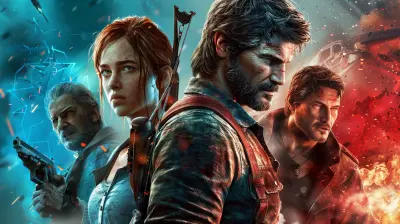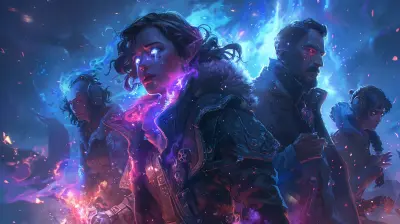Single Player Games That Reimagine Historical Events and Myths
23 August 2025
There’s something deeply fascinating about historical events and myths. They define cultures, spark imaginations, and often teach us lessons that transcend time. But what if you could dive into those moments, live through those legends, and shape them yourself? That’s exactly what some of the best single-player games let you do. They take history and mythology, give it a creative twist, and pull you in with storytelling and gameplay that feels larger than life.
In this article, let’s geek out over some of the finest single-player games that reimagine historical events and myths. So grab your controller (or mouse and keyboard) and let’s step into worlds where history, legend, and imagination collide.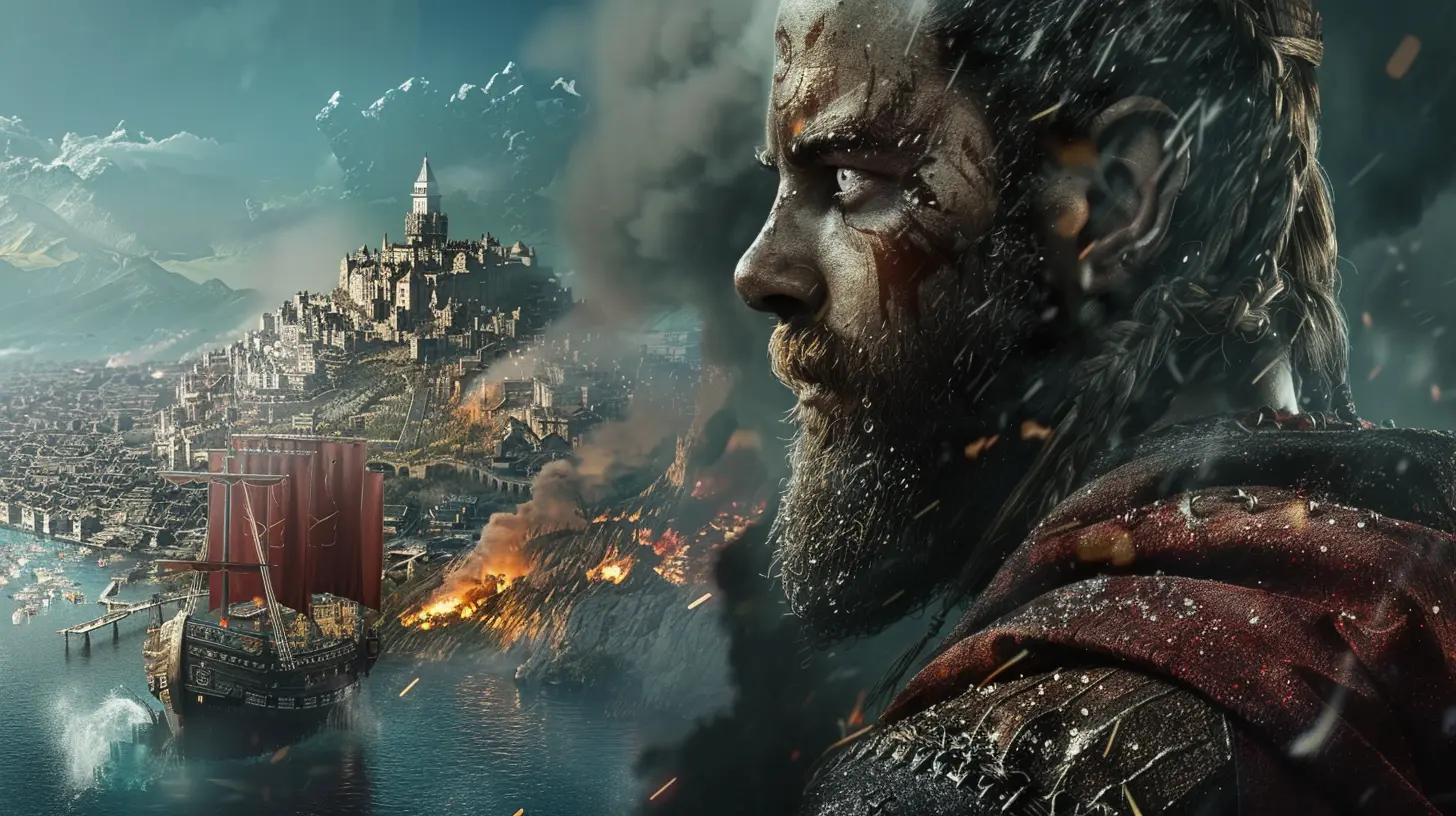
1. Assassin’s Creed Series: History Meets Hidden Blades
If we’re talking about single-player games that reimagine historical events, the Assassin’s Creed series has to be at the top of the list. I mean, how could it not? Ubisoft has essentially built an empire by combining intricate historical settings with the ever-appealing allure of an ancient secret war between Assassins and Templars.What’s cool here is how they weave actual historical events and figures into their fictional narrative. In Assassin’s Creed II, for example, you’re running around Renaissance Italy, rubbing shoulders with Leonardo da Vinci and getting tangled in the politics of the Medici family. Fast forward (or rewind?) to Assassin’s Creed Origins and suddenly you’re transported to ancient Egypt, witnessing the birth of the Assassin Brotherhood while soaking in the Pyramids and Pharaohs.
Sure, there are liberties taken—don’t expect a history lesson—but the games nail the atmosphere of their respective settings. It’s like stepping into a historical documentary with swords and parkour. 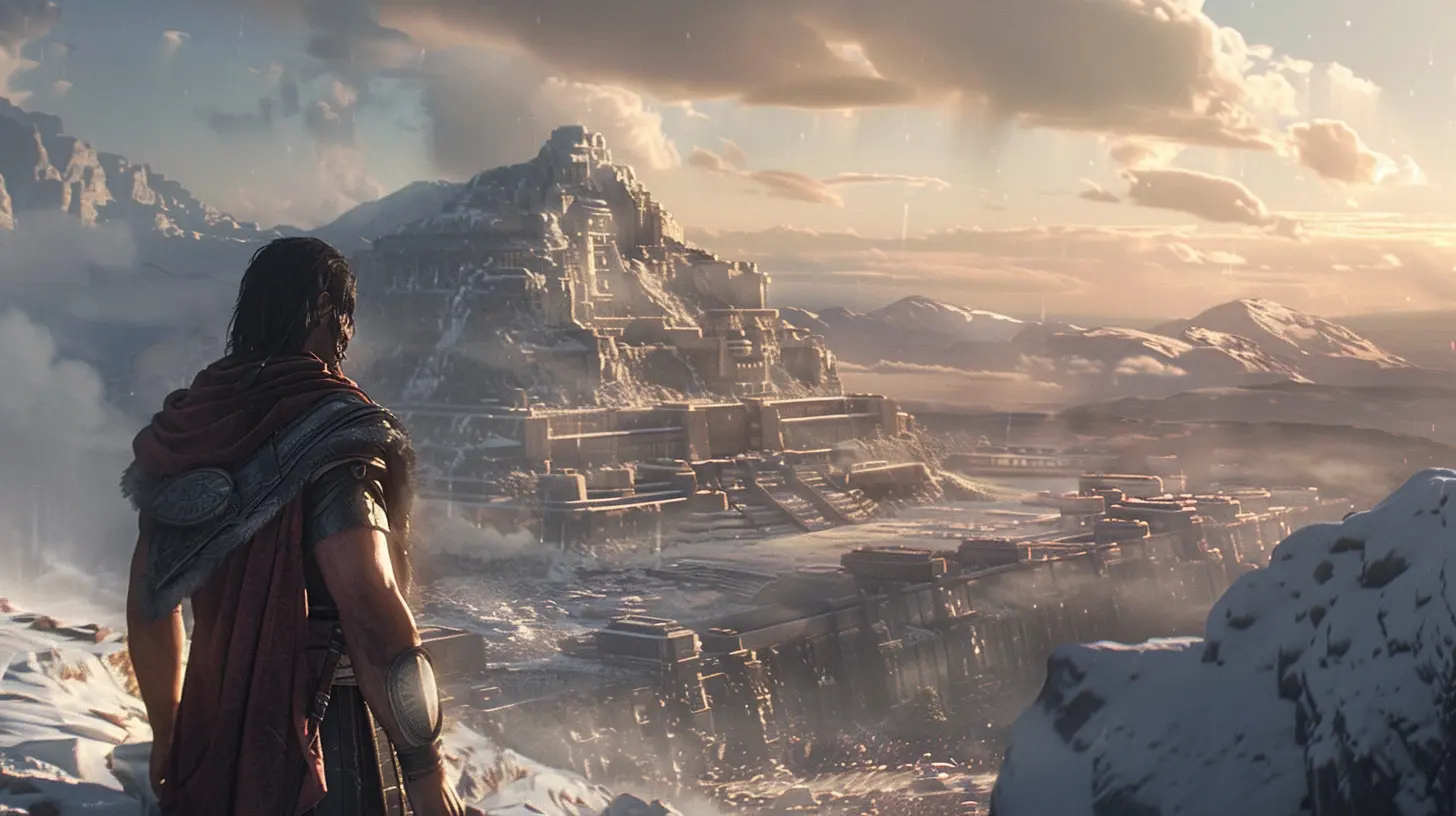
2. Ghost of Tsushima: A Samurai’s Journey Through History
Ever wanted to be a samurai? Well, Ghost of Tsushima doesn’t just make that dream a reality—it throws you into feudal Japan during the Mongol invasion of Tsushima Island. The game’s developers, Sucker Punch Studios, did a killer job recreating this era while adding a cinematic flair inspired by legendary filmmaker Akira Kurosawa.You play as Jin Sakai, a samurai torn between the honor of tradition and the necessity of unconventional tactics to save his homeland. The game blends historical realism with artistic license to paint a vivid picture of samurai culture. The landscapes? Jaw-dropping. The combat? Fluid and challenging.
What’s most striking, though, is how Ghost of Tsushima balances respect for history with the freedom to tell its own story. It’s deeply rooted in Japanese culture, but it’s also a personal tale about sacrifice, identity, and having your back against the wall. 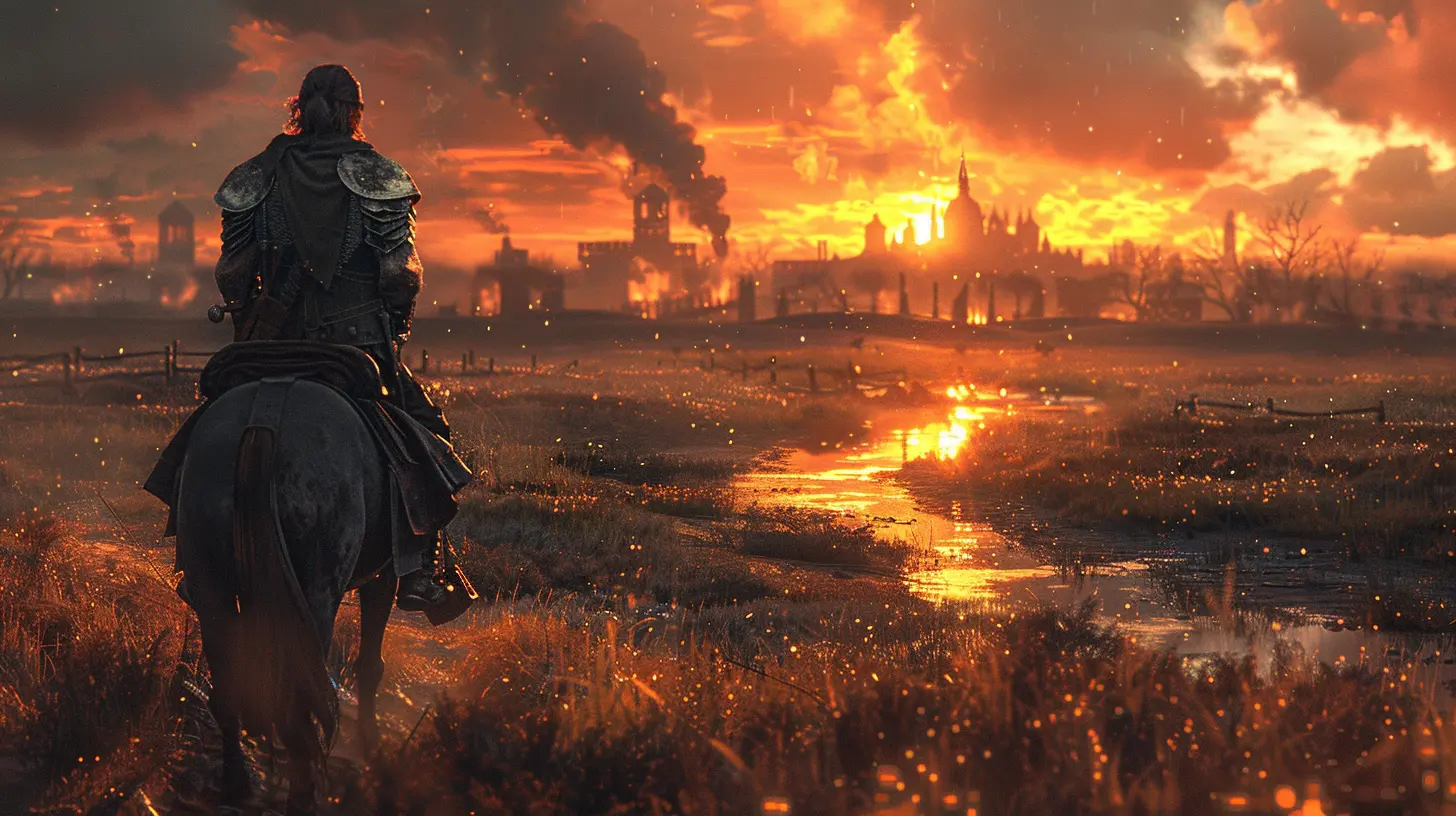
3. God of War (2018): Norse Myths, Reinvented
Alright, we’re moving away from strict historical events here and diving straight into mythology. And when it comes to modern mythical storytelling, God of War (2018) crushes it.The game takes the Greek god-wrecking anti-hero Kratos and plops him into the icy, atmospheric realm of Norse mythology. But this isn’t just a hack-and-slash free-for-all (although there’s plenty of that). It’s a deeply emotional story about Kratos and his son, Atreus, journeying to scatter the ashes of a loved one while encountering gods, giants, and creatures from Norse legend.
God of War flips Norse mythology on its head, reimagining characters like Baldur, Freya, and Thor in ways you don’t expect. It’s both epic in scale and heartbreakingly personal, a beautiful blend of mythic grandeur and quiet moments.
And the best part? You don’t need to be a mythology nerd to enjoy it. The game explains its lore in a way that feels natural and engaging, not like a lecture. 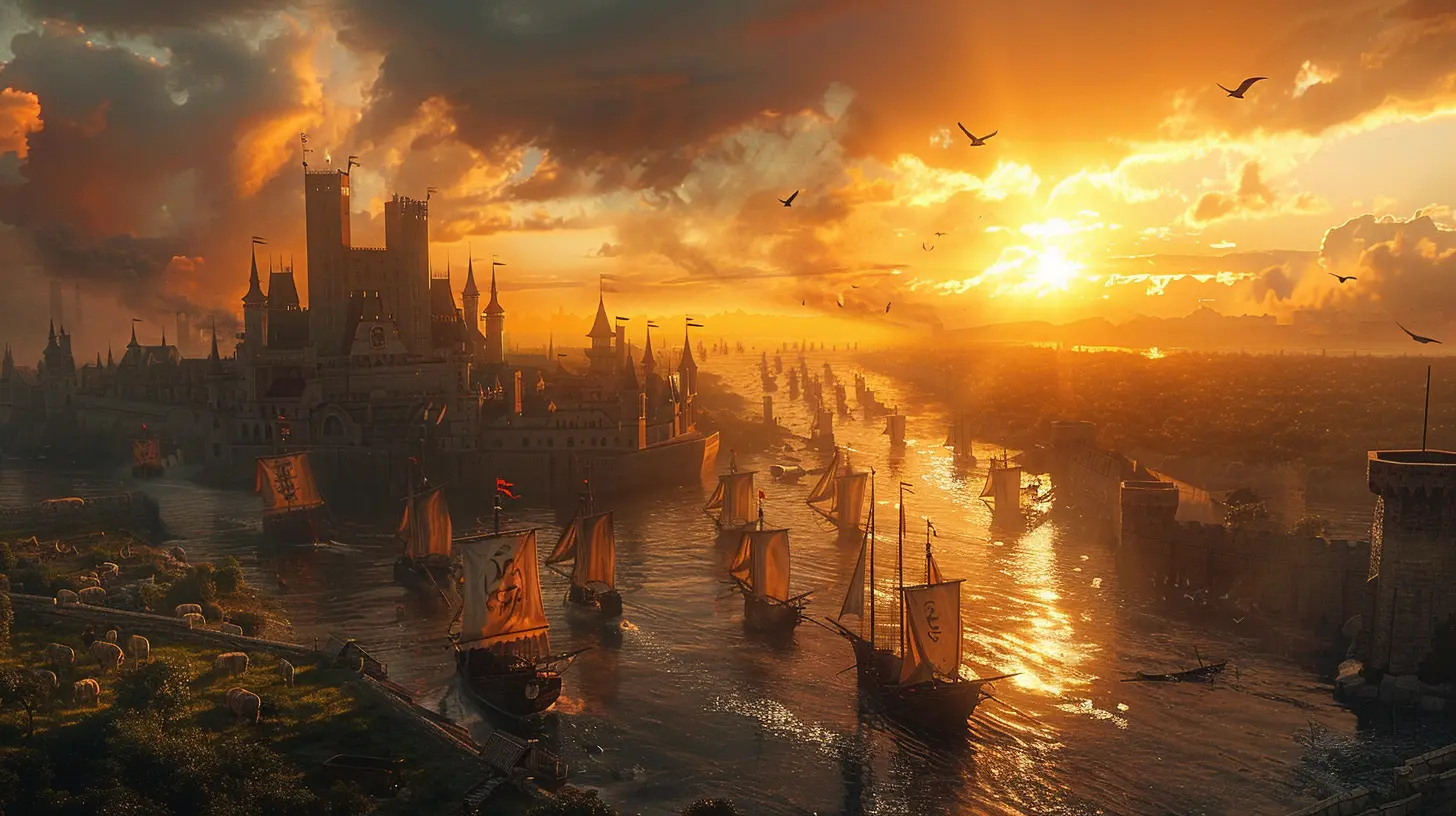
4. Hellblade: Senua’s Sacrifice – Mythology Meets Mental Health
Speaking of Norse mythology, let’s talk about Hellblade: Senua’s Sacrifice. This game doesn’t just reimagine myths—it also delves into the human psyche in a way that’s raw, haunting, and unforgettable.You play as Senua, a Pict warrior on a journey to Helheim (the Norse version of the underworld) to save the soul of her lover. What sets this game apart is its exploration of psychosis. Senua’s battles aren’t just against external enemies; she’s also fighting her own inner demons, represented through hallucinations and voices in her head.
The developers worked closely with mental health experts to portray Senua’s struggles with remarkable authenticity. Combine that with the game’s eerie use of Norse mythology and folklore, and you’ve got a one-of-a-kind experience that’s both thought-provoking and emotionally gripping.
5. Kingdom Come: Deliverance – Medieval History, Unfiltered
If you’re a stickler for historical accuracy, then Kingdom Come: Deliverance is your jam. This medieval RPG, set in 15th-century Bohemia (modern-day Czech Republic), prides itself on being as authentic as possible. No dragons, no magic—just swords, politics, and the gritty reality of life in the Middle Ages.You play as Henry, a blacksmith’s son thrown into the chaos of a civil war after his village is destroyed. The game’s story is fictional, but it’s grounded in real historical events, right down to the architecture and clothing.
What’s fascinating here is how it captures not just the grandeur of history, but also the mundane. You’re not some chosen hero with godlike powers. You’re just a guy trying to survive, learn swordplay, and navigate the complexities of medieval society. It’s not the most fast-paced game, but man, does it suck you in.
6. The Witcher 3: Wild Hunt – Slavic Myths Come to Life
Okay, I know The Witcher 3 is technically based on a series of books by Andrzej Sapkowski, but you can’t talk about reimagined myths without giving it a shoutout. This game is dripping with folklore, much of it inspired by Slavic myths that don’t always get the spotlight.You play as Geralt of Rivia, a monster hunter (or Witcher) trying to find his missing ward, Ciri. Along the way, you’ll encounter creatures like Leshens, Noonwraiths, and Botchlings—beings pulled straight from Slavic legends but given the Witcher’s signature dark, gritty twist.
The worldbuilding here is insane. Every village, every side quest, every monster feels like it has a story to tell, often tying into the folklore of the region. It’s not just a game; it’s an immersive, mythological rabbit hole that’ll have you googling Eastern European legends at 2 a.m.
7. Total War Saga: Troy – Ancient Epics Reimagined
For fans of strategy games, Total War Saga: Troy delivers a unique take on the Trojan War. The game blends historical elements with mythological ones, creating a hybrid experience that lets you shape the fate of one of history’s most legendary conflicts.What’s neat about this game is its dual focus. You can approach battles as purely historical, with grounded troops and tactics, or lean into the mythological side and recruit legendary warriors like Achilles or Hector. It’s like having the best of both worlds.
If you’ve ever wanted to command armies in one of the most epic stories ever told, this one’s definitely worth a look.
Why These Games Matter
So why do games that reimagine historical events and myths matter? They’re not just about entertainment (though, let’s be honest, they’re a blast to play). They also help us connect with history and culture in ways that feel personal and engaging.When you walk through Renaissance Florence in Assassin’s Creed or battle a mythological Norse deity in God of War, you’re not just playing—you’re experiencing. These games bring history and mythology to life in ways that textbooks or documentaries simply can’t match.
And yeah, they take creative liberties. But honestly, that’s part of the fun. Sometimes it’s those “what if?” moments—the unexpected twists and reimaginings—that make these stories so compelling.
all images in this post were generated using AI tools
Category:
Single Player GamesAuthor:

Leandro Banks
Discussion
rate this article
1 comments
Giovanna Becker
In realms where history's echoes dance, Myths arise, weaving fate's romance. Single-player tales, like whispered dreams, Reimagine worlds, unraveling seams. With each quest, we journey through time, In pixels and prose, the past we climb. A tapestry of legend and lore, Awaits the brave, forevermore.
August 25, 2025 at 4:22 AM

Leandro Banks
Thank you for your poetic reflection! Single-player games indeed weave history and mythology into captivating narratives, inviting players to explore and engage with the past in unique and imaginative ways.
